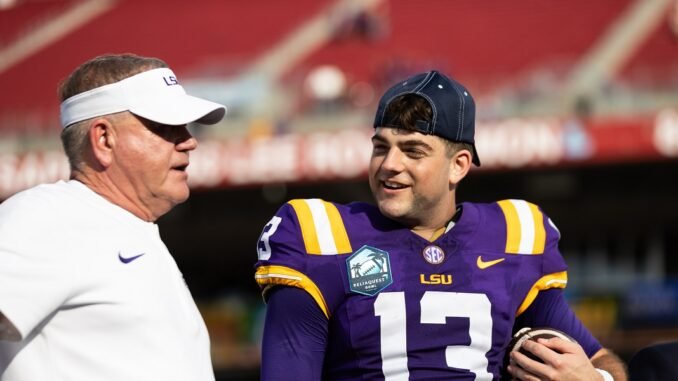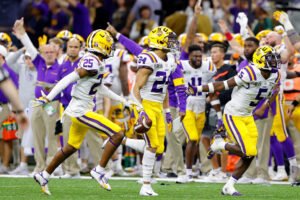
Louisiana’s Bold Sports Betting Tax Hike Could Revolutionize Funding for LSU Tigers and State Athletics
In a groundbreaking move that could reshape college sports funding, Louisiana lawmakers recently proposed a significant increase in taxes on sports betting, with the revenues earmarked to bolster NIL (Name, Image, Likeness) funds for the state’s public universities, including the powerhouse LSU Tigers.
This proposal signals a new era of financial support for collegiate athletics in Louisiana. With the LSU Tigers’ NIL fund already estimated at around $13 million following the 2024 football season, the tax hike could nearly double funding available not only to LSU but also to the other ten public universities across the state, such as Louisiana Tech and Grambling State. Altogether, these schools could see as much as $24 million in new NIL funding from the revised tax structure.
How the Tax Hike Works
The legislation originally aimed to double the existing 15 percent tax on sports betting to 30 percent but ultimately settled on a 21.5 percent tax rate. According to Associated Press journalist David A. Lieb, a quarter of all tax revenue generated from online sports wagering would be distributed equally among Louisiana’s 11 public Division I football programs.
This innovative funding strategy is designed to funnel gambling revenues directly into supporting athletes’ NIL opportunities — a game-changing move that could help these programs compete for top talent and sustain long-term athletic success.

Louisiana Governor Jeff Landry’s Role
Governor Jeff Landry held the bill pending his decision, with the potential to make Louisiana the first state in the nation to use increased sports betting taxes to fund college sports programs directly. Such a move would place Louisiana at the forefront of integrating new revenue streams into collegiate athletic budgets.
Louisiana’s approach draws comparisons to neighboring Arkansas, where the state has waived income taxes on NIL payments made directly from universities to their varsity athletes. Together, these states are leading the way in reshaping how college athletes are compensated and supported.
The Impact of Recent NCAA and Federal Changes
The momentum for this tax hike comes on the heels of a recent U.S. House decision allowing NCAA college programs to directly pay athletes. This landmark policy shift has accelerated conversations about how states can step in to financially support their sports programs in the rapidly evolving NIL landscape.
Louisiana’s plan leverages the booming sports betting industry, a multibillion-dollar market, to fund college athletics in a sustainable and innovative manner.
Political Support and Local Sentiment
State Representative Neil Riser, a Republican and the bill’s sponsor, summed up the enthusiasm behind the legislation simply:
“We love football in Louisiana… that’s the easiest way to say it.”
The move has sparked excitement across Louisiana’s sports communities, who see this as a major opportunity to secure more resources for their programs, boost recruitment, and enhance the overall competitiveness of Louisiana’s collegiate sports scene.
What This Means for Private Universities
It’s important to note that private universities in Louisiana will not benefit from this tax increase. These institutions, already grappling with the pressures of raising NIL funds independently, remain outside the scope of this new state-supported model.
Looking Ahead
If enacted, Louisiana’s sports betting tax hike could set a powerful precedent for other states looking to leverage new revenue streams to support their collegiate athletic programs. By channeling gambling revenues into NIL funds, Louisiana is pioneering a future where college sports and sports betting coexist with direct benefits to student-athletes and their universities.
For LSU Tigers fans and college sports followers alike, this proposal promises an exciting path forward—one where local passion for football translates into tangible investment and success on and off the field.
Leave a Reply